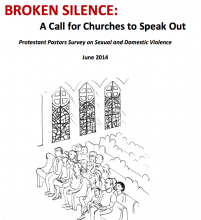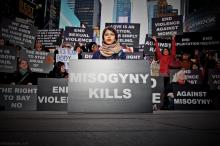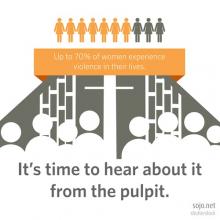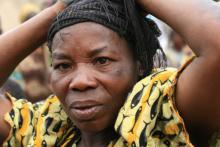sexual assault

Bill Cosby has been charged for sexual assault, reports the Los Angeles Times. The charge — of aggravated indecent assault, against alleged victim Andrea Constand in 2004 — comes with an arrest warrant. Though Cosby's decades of assault came to light in a high-profile series of revelations this year, this is the first time criminal charges have been filed against the comedian. He is expected to be arraigned at 4 p.m. on Dec. 30.

As sexual assault on college campuses became a national conversation in the U.S., dozens of women came forward with stories that Bill Cosby sexually assaulted them — and in many cases, that he drugged and raped them.
In response, some colleges that awarded Cosby an honorary degree have rescinded the award. Fordham and Marquette were the first two to do it, but with Springfield College’s recent announcement this week that it was revoking the comedian’s honorary degree, that number has grown to 12.
Still, a majority of the schools that awarded him a degree — at least 60 — have not revoked the honor. Vulture contacted more than 40 of these schools and listed their responses on their site. Some colleges replied that they were currently having discussions about the matter, while others made statements similar to George Washington University’s:
“It has never been the university’s practice to rescind an honorary degree.”

Unlike her previous music videos, known for their theatrics and intricate dance numbers, Lady Gaga’s new video “ Til It Happens to You” opens on a simple black and white shot of a college dorm. Like most dorms across the country, the walls are sparse cinderblock, the floors are tiled, and the desk and beds are made of heavily lacquered pinewood.
Like many dorms across the country, this set is the scene of multiple sexual assaults. More than one-in-five women are sexually assaulted or raped on college campuses each year. Lady Gaga’s video was made in conjunction with the documentary film on campus rape, The Hunting Ground, and the stories her video portrays are both unique in their details and disconcertingly familiar.
There are harrowing scenes to watch, but the video does not end on the nights of the assaults. Each survivor has to deal with the trauma in her own way. They pull away from their friends. One fears the bathroom and stops showering. The two friends are unable to talk about what happened and one drops out of school.

AN IRAQ WAR VETERAN passes the offering plate after listening to a sermon on Christian persecution in the early church—tales of torture and execution. A 19-year-old student—home for the summer from college, where her first experience at a fraternity party turned violent—listens to her childhood pastor recite the story of David and Bathsheba and David’s subsequent path to redemption. A mother placates her two children with Cheerios and raisins as she struggles through the exhortations to spousal submission, hiding bruised arms under long sleeves in the middle of July.
The Christian story is littered with trauma—from slavery (the Israelites in Egypt) to sexual assault and abuse (Dinah, Tamar, Bathsheba) to the trauma of war (see: much of the Old Testament) to, of course, the crucifixion of Jesus and martyrdom of his disciples.
There is possibly no better resource for understanding the implications of and need for healing from trauma than faith communities pointing to the cross and Jesus’ answer to violence. Both the need and the opportunity are great. But perhaps too often Christians proclaim the message of Easter—victory and restoration—while skipping past the violence and trauma of Good Friday. Some theologies explain away that violence as a necessary component of ultimate salvation—but let’s get to the salvation part, okay?—leaving survivors of trauma who fill our Sunday pews without a touchstone for healing within the very communities that purport to be safe spaces.

Sometimes I wonder if anyone saw what was happening to me in that nightclub. I wonder if someone chose to ignore it or if they genuinely didn’t know what to do. I think these are common reactions when someone witnesses an assault or is faced with a situation that could result in one. As a bystander, there are some steps you can take to save yourself, your friends, or people around you...

During my freshman year of college, a girl who lived in my dorm was raped. It was during the first month of school. I didn’t know her well. As the rumors spread, I remember thinking, “Oh yeah, the blonde with the big boobs.”
I remember having a conversation with my friend about how nice the accused boy seemed. I remember that friend replying, “She did wear low cut shirts during orientation — makes sense she would start a rumor like that.”
The survivor transferred from my college the following semester.
During my senior year of college, my best friend was the president of his fraternity. During the fall semester, there was a reported case of rape that occurred with two males and one female in the basement during a party. All I remember is how stressed my friend was because, as president, he had to deal with the legal proceedings of the case. The case was closed without either of the men being prosecuted. I remember being upset because my favorite fraternity was put on probation (no parties on the weekend) for two months. I never knew the survivor.
The documentary The Hunting Ground taught me I was part of campus rape culture, and I didn’t even realize it. It is estimated that between 20 percent and 25 percent of women experience completed or attempted rape over the course of a college career. That means for every 1,000 women attending a college or university, there are 35 incidents of rape each academic year.

I would never want anyone to experience what I endured and my hope is that everyone will join the fight to help end sexual assault.
If you ever find that you are a bystander, be bold and intervene for someone who is in danger of being sexually assaulted. Even when you are out with friends and familiar faces, do not let your guard down; unfortunately, 38% of rapists are a friend or acquaintance.
You may find yourself in a situation where you see something that is not quite right. Do not hesitate to step in. Ask questions if someone seems uncomfortable, and interrupt the situation. Show them that you care.Call for help if need be, but by all means, do not leave them alone. When you intervene, you help raise awareness and debunk myths about sexual assault.
If you know someone who has been sexually assaulted, listen to them and believe them. Your presence, boldness, and support can make all the difference.

Silverman makes a startling pronouncement: “We should have more rape jokes,” she says.
And if they're donw within the right framework, she’s totally right. Though rape jokes have traditionally been made at the expense of victims or used to normalize rape (for example, Daniel Tosh’s stand-up routine in which he imagines a rape victim laughing while being attacked), Silverman recognizes that humor can be a powerful tool for dismantling rape culture.
Silverman recently demonstrated the power of jokes aimed at rape culture when a recent photo she posted on Twitter went viral. The photo captured a list of “Rape Prevention Tips” for potential rapists. The list included lines like: “Carry a rape whistle. If you find you are about to rape someone, blow the whistle until someone comes to stop you.”
Of course, what makes this photo powerful is how it challenges the dangerous idea that the best way to prevent rape is to teach individuals to avoid getting raped; as Lyndsey Christofferson explains in “Blaming the Victim” (Sojourners, May 2015) this idea has weaseled its way into how Christians interpret biblical passages about sexual assault (Bathsheba, anyone?) as well as how we teach young people about modesty. Instead, Silverman’s photo points out that the best way to avoid rape is to teach people not to be rapists.
1. ‘A Rape on Campus:’ What Went Wrong?
Columbia University’s Journalism school released its report detailing the journalistic failures of Rolling Stone’s viral story ‘A Rape on Campus,’ which initiated, and later may have stifled, an honest conversation about the prevalence rape on college campuses. Read the full report. “[Writer Sabrina Rubin] Erdely and her editors had hoped their investigation would sound an alarm about campus sexual assault and would challenge Virginia and other universities to do better. Instead, the magazine's failure may have spread the idea that many women invent rape allegations.”
2. The Courage of Bystanders Who Press ‘Record’
“Despite the fact that the world can now see Eric Garner being killed by an illegal chokehold — despite the fact that New York City Police Department banned chokeholds years ago — film of the incident did not result in the officer, Daniel Pantaleo, being charged. But thanks to the efforts of Ramsey Orta, who filmed Garner’s death, we know.”
3. Hope but Verify: The Iran Nuclear Framework
“House Speaker John Boehner recently said this about the broader instability in the Middle East: 'The world is starving for American leadership. But America has an anti-war president.' In the context of our faith — or even in the context of conservative ideals — is leadership that prevents war something to be maligned?”
4. How the Presidential Candidates Found Their Faith
“This season’s crop of presidential candidates reflects this country’s many contradictions in faith.” Newsweek explores the faith backgrounds of the apparent 2016 field so far.

The term "rape culture" is a sociological theory in which individuals who sexually harass and assault others are given a social license to do so, as they live in a society that makes excuses for perpetrators and blames victims for their own abuse. Feminist theorists often argue that rape culture beliefs are socialized into young men and women from childhood. Young men are socialized into beliefs that they have power and/or control and entitlement over others' bodies from a very young age. Likewise young women are socialized into believing they control men’s desire and lust via their clothing, behavior, and attractiveness. The theory of rape culture argues that these social beliefs facilitate sexual harassment, inappropriate sexual touch, sexual assault, and sexual objectification of others by reducing the stigma of engaging in unwanted sexual behavior and by increasing a since of entitlement from men towards women.
In Christian spheres of influence there has been an increasing focus — via Sojourners, Christians for Biblical Equality, and likeminded groups — to exposing how social beliefs, church leaders, and authoritarian theology has contributed to rape culture beliefs in the church and in the larger community. This focus comes in the midst of a media debate between social conservatives and social progressives about the very existence of rape culture. Inspired by conservative opposition to the recent publicity from the White House on the epidemic of sexual assault on college campuses, this debate was further inflamed by the retraction of a Rolling Stone article about allegations of sexual assault at the University of Virginia. In response, it has become popular in recent months for conservative commentators to argue that there is no such thing as "rape culture."
This escalation of rhetorical debate is dangerous because it distracts from the real concern that rape culture theory was developed to address — that we help socialize dangerous behavior in children by our actions, inactions, and modeled beliefs.

An outside watchdog group hired to investigate sex abuse claims at Bob Jones University issued its 300-page report on Dec. 11, concluding that the conservative Christian school responded poorly to many students who were victims of sexual assault or abuse.
Bob Jones, with about 3,000 students at its campus in Greenville, S.C., tapped Lynchburg, Va.-based GRACE (Godly Response to Abuse in the Christian Environment) in November 2012 to investigate claims about sexual assualt. During its two-year investigation, GRACE interviewed 50 individuals who self-identified as victims of sexual abuse.
Some of those students claimed they were victims on campus; others said they were dealing with child sexual abuse but received a poor reception from campus officials as they struggled with their past.
The school’s teachings on sin, forgiveness, discipline, and justice shaped how Bob Jones University responded to sexual assault, the report argues.
“As a result of the school’s poor responses, many of these students were deeply hurt and experienced further trauma,” a press release from GRACE states.

I thought at first that it was a fictional scene, conflating in one example some of the problems those of us in Christianity face when confronted with issues of domestic violence. The scene was set up as a call to rethink how we articulate our theology in areas like sacrifice and forgiveness and commitment and gender roles.
Here’s what I wrote in The Capital Times in Madison, Wis., that was posted on Sunday:
“A woman has been suffering physical abuse at the hands of her husband. She finally summons up the courage to talk to her pastor about it.
“His advice: First, you need to recognize that your suffering is like Jesus’ suffering. Next, you need to forgive like Jesus forgave. Then remember that you made a commitment to marry this man for life. He is the head of your family, so you need to make sure you are doing what he wants so as not to trigger his anger.
“And then an offer: Let me meet with the two of you and help you patch up your marriage.”
I described it as a fictional scenario. And then I heard this from a friend: “that was the response from my minster regarding my first husband 30 years ago ...”
I’d like to think that many pastors these days are a least a bit wiser both theologically and practically in how they deal with someone facing domestic violence. That’s reflected in a groundbreaking survey released last week by Sojourners at The Summit: World Change Through Faith & Justice.
In his opinon column published on June 6, George Will suggests that colleges have "become the victims of progressivism," blaming a proliferation of victims on government overreach. In his first paragraph, Will disregards the validity of sexual assult on campuses, as he says:
[Colleges and universities] are learning that when they say campus victimizations are ubiquitous (“micro-aggressions,” often not discernible to the untutored eye, are everywhere), and that when they make victimhood a coveted status that confers privileges, victims proliferate. And academia’s progressivism has rendered it intellectually defenseless now that progressivism’s achievement, the regulatory state, has decided it is academia’s turn to be broken to government’s saddle.
In response to his article, survivors have taken to Twiter with #SurvivorPrivilege.
#SurvivorPrivilege pic.twitter.com/zNFggXGT64
— Elizabeth Plank (@feministabulous) June 9, 2014
To my fellow men,
I’m sure you are as heartbroken as I am about the killings at UC Santa Barbara by a troubled young man with a misogynistic manifesto. Heartbroken for the community, for the families who lost loved ones, and even for the young man who felt like there was no other way.
Now I’m not much of a “Tweeter” (is that the right word?), but I heard that a group of us has taken to defending ourselves on Twitter with the hashtag #NotAllMen. They want to say that that #NotAllMen sexually assault women. #NotAllMen expect a date to be reciprocated with sex. #NotAllMen harass women for the way they do or don’t look at us. They want to say that we’re not like those other people, that we respect women as equals, not demean them as prizes or products.
Who cares?
As part of yesterday's announcement of new initiatives to combat sexual assault on college campuses, the administration released this public service announcement, joining forces with leading actors Benicio Del Toro, Dule Hill, Steve Carell, Daniel Craig, and Seth Meyers.
Today Vice President Joe Biden announced a series of new initiatives aimed at addressing sexual violence on college campuses and launched NotAlone.gov — a website that pools campus reporting data and points both students and school officials to sexual assault resources.
The administration is also releasing the first report of the White House Task Force to Protect Students from Sexual Assault, which was established in January.
Under Title IX, college campuses that receive federal funding are already required to take steps to prevent sexual assault on campus and respond promptly when sexual assault is reported. Further, the Clery Act requires those that receive funding to report their crime statistics and provide policies for prevention. The website NotAlone.gov will be a central repository for these reports and clarify for students their rights under the Clery Act and Title IX.
What is unclear, however, is what has changed for Christian college campuses and other private institutions.
Too many women and men are sexually assaulted in college. We must put an end to this violence. → http://t.co/9QH89qCLvd #1is2Many
— Office of VP Biden (@VP) April 29, 2014
Tomorrow is Valentine’s Day, our annual reminder to celebrate the love we share in our lives. While many may be struggling through aisles of candy hearts and bunches of roses, I invite you to flip this day of mandatory public expressions of love on its head.
What if, along with romantic dinners and expensive chocolates, we celebrated those we love by committing ourselves against sexual and domestic violence? This Valentine’s Day, or V-Day, Sojourners is joining with One Billion Rising to speak out on violence against women — the most hidden injustice in our world. We speak out because one in three women will be raped or beaten in their lifetime. That’s one in three women in my family, in my circle of friends, in my workplace — and in my church.
We speak out because we want a different reality for our daughters.
We speak out because our Christian faith tells us to lift up the voices others would silence.
And we speak out because we must rally our church leaders to commit themselves to do the same.

By official estimates, 26,000 people are sexually assaulted in the U.S. military each year. That comes out to 71 people every day. It’s an epidemic that’s been widely reported in the news.
As if that weren’t bad enough, most of the assaults go unreported – only 11 percent of assault victims ended up filing reports last year (3,374). Studies show that those who do not report the assault cite fears of retaliation and a concern that nothing will be done.
Leaders in Congress are trying to change that this week with the Military Justice Improvement Act.
Right now, if a woman is sexually assaulted in the military, her case is evaluated by a commanding officer. This officer decides whether to bring the case to trial. Once it has been tried, the same commanding officer is responsible for enforcing the consequences. That’s called “convening authority.”

I can still see in my mind’s eye the vibrantly colored wraps draping the hundreds of displaced women I met at Joborona Camp in Northern Sudan. The stories they told, of blazing huts in Southern Sudan and their men burning alive inside; of their boys forced to fight and kill at ages as young as six or seven; and of their girls taken and forced into sexual slavery seemed impossible to be true. Yet I heard them again and again.
And if these stories weren’t horrific enough, it was the stories the women chose not to share that haunt me the most. Their empty eyes and void expressions told me all I needed to know.
I know empty eyes. I have gazed into them in Bosnia and Croatia. I remember Rwanda, Sierra Leone, and Liberia. I have witnessed them in the Democratic Republic of the Congo — where it is believed that one million girls and women have stories to tell of the gender-based violence they have endured. I have been confronted by the eyes of our sisters from Darfur, who risk their dignity, their bodies, and in some cases their very lives by leaving their refugee camps to collect firewood for their small cooking stoves (those who are lucky enough to have one). It is in the bush, often, that they are victims of sexual and gender-based violence. These are the countless women who risk being raped so their children can eat.

Editor’s Note: As we continue reporting on the important topic of sexual abuse and violence, Sojourners has opened up the Sexual Violence and the Church blog series for submissions. This piece is one such submission. If you are interested in submitting a post for the series, please email the Web Editor HERE.
"From the beginning …" began my pastor, rising slowly from his armchair. With his next words, he broke my world apart. From the beginning, he had been attracted to me as a woman. From the beginning, his interest in me had been personal. He told me the reasons why, and then he said these words: "If we were both single, and if I weren't your pastor, we'd be going out to dinner." He paused a long beat. “And we’d see where it went from there."
Were my pastor's words an act of sexual violence?
When we hear the words "sexual violence," we may envision a forcible rape or a sexual act with a person incapable of consent. Many of us would consider unwanted groping or uninvited embraces to be acts of sexual violence. Some of us would include "consensual" sex between persons of different rank, because we understand that power disparity makes meaningful consent impossible. But what about the manipulative behavior that gives rise to the delusion of consent? Was my pastor's not-quite-a-proposition an act of sexual violence? Could a lingering handshake, a compliment on spiritual gifts, or an offer of pastoral support be acts of sexual violence? Most of us would say no. And most of us would be missing the boat.